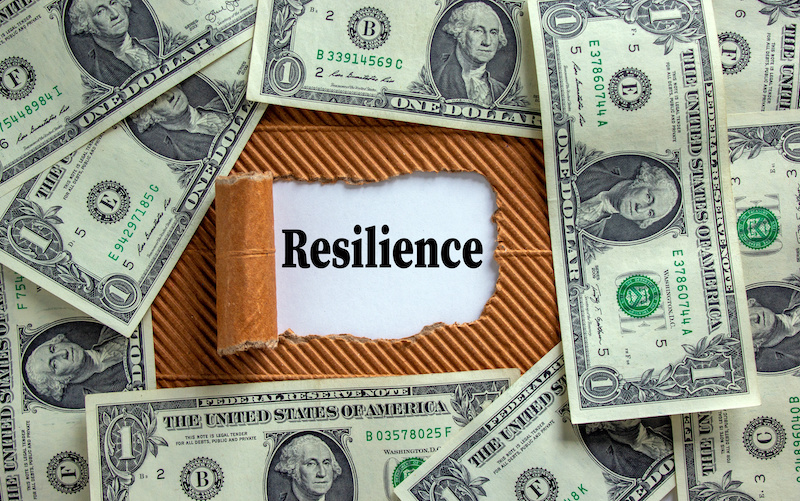Pay No Attention to That Man Behind the Curtain
Matt BramsonMarch 4, 2019

Man silhouette [sic] behind curtains by Peshkova via Adobe Stock
Something is changing in our community. Our concept of citizenship is being altered by technological and social forces. The degree to which we engage in politics, the means we use to do so, and the actions we take as citizens are transforming. And it’s affecting who our representatives are and how they behave. This is glaringly obvious on the national stage, but it’s also starting to creep into our little playhouse, Key Biscayne local government. Just a few short years ago Village government was far from center stage, but that has changed. Three trends are responsible:
- Social Media. Facebook is 15 years old; Twitter is 12; WhatsApp is just 10. Social media as a major phenomenon is barely a teenager and that’s a challenging age. Twitter and Facebook have gone into politics in a big way. And the baby of the family, WhatsApp (which is owned by Facebook), is now hosting shoot-from-the-hip, group political debates.
- ProtestaPalooza. Protests and lawsuits, once last resorts, are now elevated in our thinking to be honorable and clever — even when, or sometimes especially when, they are not preceded by significant efforts at resolution and compromise.
- Emergency! Everything is an emergency. School facilities are an emergency. Bridge and road and park improvements are emergencies. And, of course, underground power lines are an emergency. This is a particularly insidious trend because emergencies can’t wait for thorough research, consensus building, or limited-scale testing — emergencies require bold, rapid, or even reckless action. Because often the worst thing you can do in a real emergency is nothing.
These ingredients combine to elevate the perceived importance of politics in our lives while requiring less commitment from us to feel involved. And this has both made it much harder and easier to be a political representative. Being a good political representative, defined as learning about issues, finding consensus, and devising and executing effective actions, has never been harder than it is today. And being a poor political representative, defined as identifying groups, finding controversy, and devising and executing protests and other forms of mayhem, has never been easier than it is today.
So what can we do? Are we doomed to divisiveness and paralysis on important issues? Condemned to be manipulated by masters of social media, protests, and leveraging our perception of urgency? Not necessarily. But it will require recognizing the forces that are at play and combating them.
- Put the “Social” back in “Social Media.” — It used to be a truism that politics and religion were inappropriate topics for social gatherings. This wasn’t simply because they were understood to be controversial and even emotional. It was also because they were understood to be complex. Social media is a social gathering — a place to share small talk, photos, jokes, and simple ideas. It’s not an ideal place to thoughtfully hash out complex issues. The sooner we recognize and honor this, the better.
- Respect the Process — Protests and lawsuits should be serious business because they imply that the established processes of bringing about change or resolution aren’t functioning. If a process moves too slowly or seems to be heading in a direction you disagree with, that’s not the same thing as claiming it’s not functioning. Avoid claims that are corrosive. Before joining a protest or supporting a lawsuit, ask yourself whether you have personally made every effort within the process to bring about whatever change you desire. And if you haven’t, do that first.
- Trust yourself — Real emergencies are those you perceive directly. You don’t only hear about them on the news or see them portrayed in movies. Today’s technology can expose us to people, places, and things that broaden our perspective — but it can also distort our perception. There are lots of people eager to have you believe that something they want is an emergency for you. Be skeptical of “emergencies.”
Social media, the protest/lawsuit culture, and efforts to stoke our impatience can be seen as components of a loosely-organized business model. Engaging people and consuming attention, personal data, and ultimately money are the goals. We are being cynically and profitably manipulated by a small group of people with an understanding of human psychology — to the level of neurochemistry — and cutting-edge technology. They get better at it every day with advanced analytics and machine learning.
Like Toto in The Wizard of Oz, we must pull the curtain back and recognize what’s real and what’s an illusion created by wizards vying for our money and power. What’s real is that we have a wonderful community full of talented, passionate, and diverse (in every possible way) people. We the residents and our relationships are the Village of Key Biscayne. Because “Oz never did give nothing to the Tin Man . . . that he didn’t already have.



Join the conversation